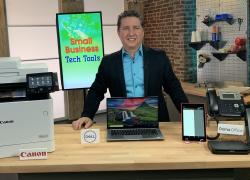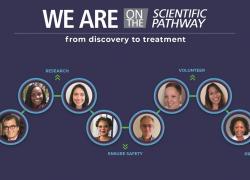BookBites: Wide Range of Storytellers to Suit All Reading Tastes

 "Lover Boy"
"Lover Boy"
by Stephen Kronwith, M.D.
A lustful physician and a beautiful detective clash in a comedy caper involving a billionaire's murder, his stunning widow and an amorous, aging assassin.
Dr. Joseph Peck has one vice -- he's addicted to love. And one unusual secret -- his best friend is a retired Mafia Don. Anna Franklin learns this secret. She also discovers that her husband will be seeking a divorce, relegating her to a pre-nup pittance instead of billions were he to die -- soon.
Anna enlists the friends, and the Don knows one ex-associate to call upon for the hit -- Lover Boy, who, despite being on Social Security, is still quite able to live up to his deadly reputation -- and nickname. Purchase at https://amzn.to/35Lbwaf.
 "The Shade Under The Mango Tree"
"The Shade Under The Mango Tree"
by Evy Journey
An epistolary tale of courage, resilience of the human spirit, and the bonds that bring diverse people together.
After two heartbreaking losses, Luna seeks an adventure in which she can make some difference. Lucien, a worldly young architect, finds a stranger's journal at a café. He has pangs of guilt about reading it. But that doesn't stop him, and his decision changes his life.
Months later, Luna and Lucien meet at a bookstore. Fascinated by his stories and spirit, Luna goes to a rural, rice-growing village in a country steeped in an ancient culture and a deadly history. What she finds there defies anything she could have imagined. Purchase at https://amzn.to/3nxSFHt.
 "Overcoming"
"Overcoming"
by Dr. Augustus White III
Twenty inspiring profiles of men and women who've defied the odds to overcome adversity.
The coronavirus COVID-19 has changed our lives forever, confronting us with an adversity like none we have known in our lifetimes. Where can we find the resilience to overcome the changes forced upon us?
The answers lie in Overcoming and the lessons we can learn from everyday heroes who found the strength to persevere through life crises that threatened to overwhelm them, just as we feel overwhelmed today. Groundbreaking physician Dr. Augustus White III, no stranger to adversity himself, has fashioned an essential manual on not only surviving in a post-coronavirus world, but even thriving in it, as those in this book have. Purchase at https://amzn.to/3qXe9Qk.
 "Smokescreen"
"Smokescreen"
by Khaled Talib
At an ancient café in Cairo, two veteran spies plot a covert mission to resolve the Israeli-Palestinian conflict. The pledge: Israel will make a major concession as part of the peace treaty. In Singapore, Jethro Westrope, a magazine journalist, stumbles onto the scene of a murder: the beautiful Niki Kishwani directs him, in her last breath, to a digital recorder, evidence that puts Jethro's life in serious danger. And, much worse, he is framed for Niki's murder.
Jethro sets out to find Niki's killer and is drawn into a web of deception and intrigue involving officials from the Singaporean, Israeli, and American governments, each with a potentially deadly agenda. Against this pulse-pounding backdrop, Jethro races to find answers and save himself. Purchase at https://amzn.to/3mqJbwE.
NOTE: BookBites is a continuing series bringing readers information and ideas for their next read. For more reading ideas, visit BookTrib.com and subscribe to our weekly newsletter.





